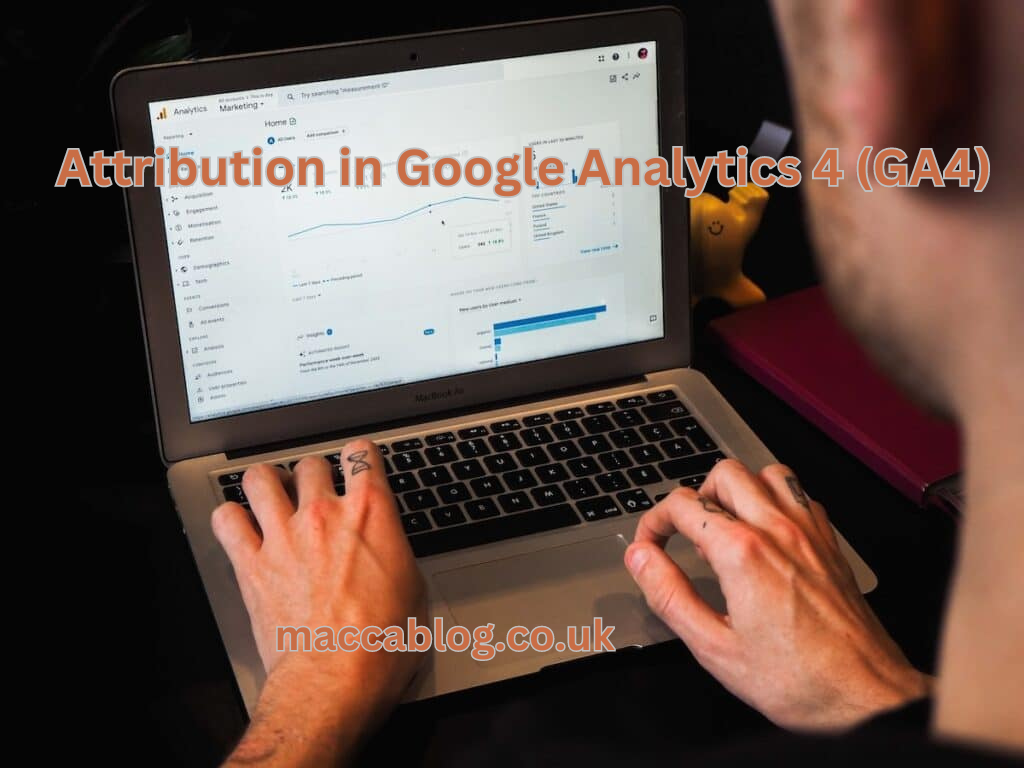Attribution is a critical concept in digital marketing that helps businesses understand the journey of their customers, from their first interaction with a brand to conversion. In Google Analytics 4 (GA4), attribution plays a pivotal role in determining the value of each touchpoint along the customer journey.
What is Attribution?
Attribution refers to the process of identifying which marketing channels and touchpoints contribute to a conversion or desired action. It helps marketers allocate credit to these touchpoints accurately.
Importance of Attribution in Digital Marketing
Understanding attribution is crucial for optimizing marketing efforts, budget allocation, and overall strategy. By knowing which channels drive conversions, marketers can make informed decisions to maximize ROI.
Key Concepts of Attribution in GA4
In GA4, several key concepts define how attribution is handled compared to its predecessor, Universal Analytics (UA).
Attribution Models in GA4
GA4 offers different attribution models, such as first-click, last-click, linear, and time-decay. Each model distributes credit to touchpoints differently.
Comparison of Attribution Models
Understanding the differences between attribution models is essential for choosing the most suitable one based on your business goals and customer journey.
User-ID vs. Event-Based Attribution
GA4 introduces user-ID-based attribution, allowing tracking of individual users across devices. Event-based attribution focuses on specific actions or events that contribute to conversions.
Setting Up Attribution in GA4
Implementing GA4 for attribution involves several steps to ensure accurate tracking and reporting.
Configuration Steps
Setting up GA4 requires creating a property and data streams in the GA4 interface, then configuring tags and triggers for accurate event tracking.
Best Practices for Setting Up Attribution
Best practices include defining goals, setting up conversions, and integrating with other platforms for a comprehensive view of attribution data.

Understanding Attribution Reports in GA4
GA4’s attribution reports provide insights into the effectiveness of marketing channels and touchpoints in driving conversions.
Exploring the Attribution Report Interface
Navigating through the interface allows marketers to view and interpret data related to attribution.
Interpreting Data in the Attribution Reports
Understanding how to interpret data in the reports helps in making data-driven decisions and optimizing marketing efforts.
Advanced Attribution Features in GA4
GA4 introduces advanced features that enhance attribution capabilities, catering to more complex business needs.
Cross-Platform Attribution
Attribution across platforms helps in understanding how different devices and channels contribute to conversions.
Challenges and Solutions
Overcoming challenges such as cross-device tracking and data integration ensures accurate cross-platform attribution.

Custom Attribution Models
Creating and implementing custom attribution models allows businesses to define credit distribution according to specific business requirements.
Optimizing Attribution for Conversions
Optimizing attribution involves tailoring strategies based on different business objectives, such as e-commerce sales or lead generation.
Attribution for E-commerce
Tracking sales and transactions across various channels and touchpoints helps in optimizing e-commerce strategies.
Attribution for Lead Generation
Tracking form submissions and other lead-generation actions provides insights into the effectiveness of marketing campaigns.
Case Studies on Attribution in GA4
Real-world examples illustrate how attribution works in practice and the impact of different attribution models on business outcomes.
Case Study 1: E-commerce Sales Attribution
Analyzing sales attribution using different models provides insights into which marketing efforts are driving revenue.
Case Study 2: Lead Generation Attribution
Tracking lead generation efforts helps in understanding which channels are most effective in generating leads.
Challenges and Solutions in Attribution Analysis
Despite its benefits, attribution analysis comes with challenges that marketers need to address to ensure accurate data interpretation and decision-making.
Common Challenges in Attribution
Challenges such as data discrepancies between platforms and cookie restrictions require innovative solutions.
Future Trends in Attribution Analysis
The future of attribution analysis lies in advancements in AI and machine learning, providing more accurate insights into customer behavior.

Conclusion
Understanding attribution in GA4 is crucial for any digital marketer looking to optimize their marketing strategies. By identifying the most effective channels and touchpoints, businesses can allocate their resources more efficiently and improve their ROI.
Frequently Asked Questions (FAQs)
- What is the difference between attribution in GA4 and Universal Analytics? Attribution in GA4 focuses on events and user-centric data, whereas Universal Analytics primarily uses sessions.
- How can I choose the best attribution model for my business? Choosing the best model depends on your business goals and the complexity of your customer journey.
- What are the limitations of GA4 attribution? Limitations include the learning curve for new users and the need for proper setup to avoid data discrepancies.
- Can I customize attribution reports in GA4? Yes, GA4 allows customization of reports to suit specific business needs and goals.
- How often should I review my attribution models in GA4? It’s recommended to review attribution models regularly, especially after significant changes in marketing strategies or business goals.
